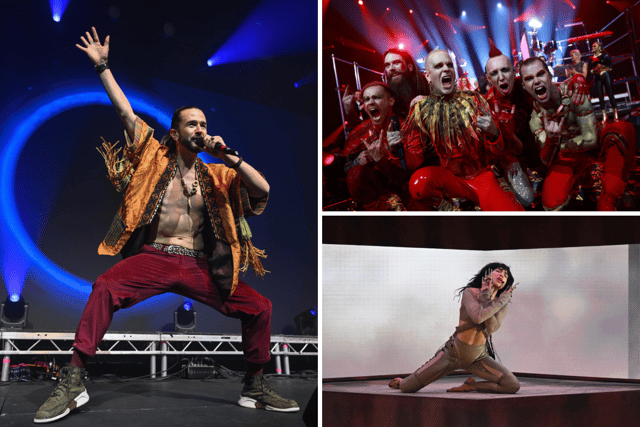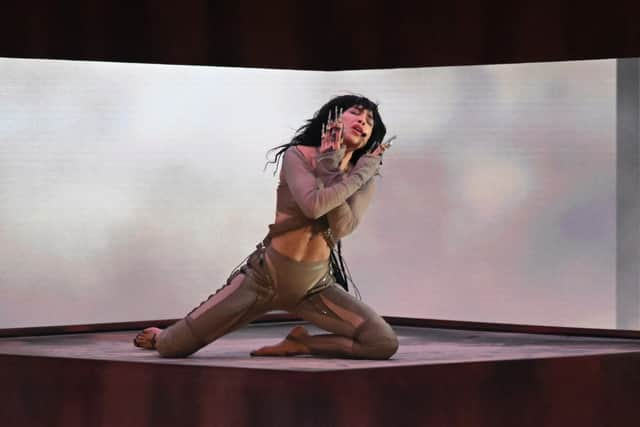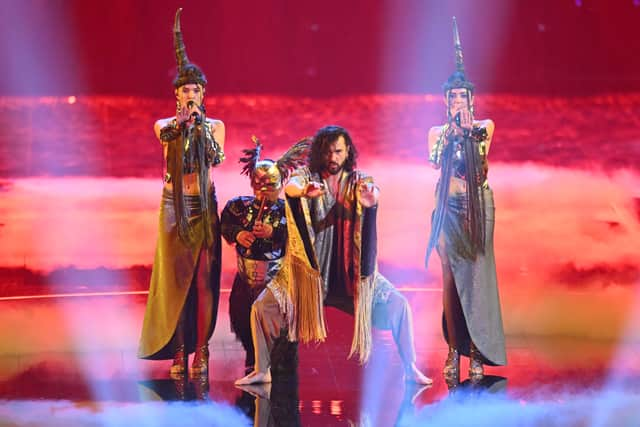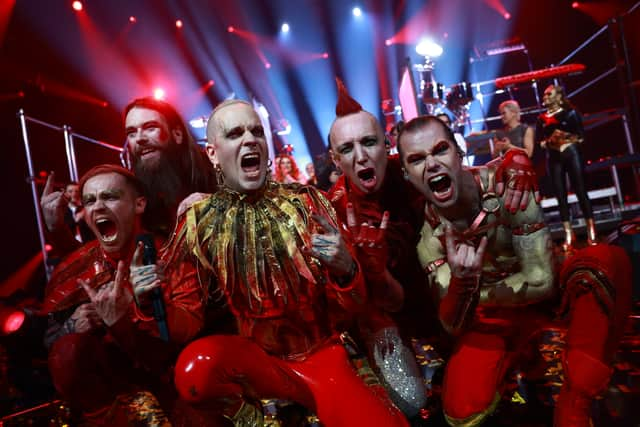Eurovision 2023: have scientists cracked the code to predicting a Eurovision winner? UCL expert reveals study
and live on Freeview channel 276
Love it or loathe it, the Eurovision Song Contest is back.
Eurovision fever has definitely hit the UK, with the biggest party in the world being held in the country for the first time since 1998 - after it agreed to stand in for last year's winner, Ukraine. Festivities are set to kick off in Liverpool with the first semi-final on Tuesday evening (9 May), with the second round and the finals to take place on Thursday evening (11 May) and Saturday night (13 May).
For diehard fans and casual viewers, attention is turning to what songs could come out on top to take home the crystal trophy. Each year bookies scramble to predict the winner, with excitement building around certain tracks in the hype and build-up to the big day.
Advertisement
Hide AdAdvertisement
Hide AdBut what if there could be a more accurate way to predict how well a song could do at Eurovision? Scientists have now waded into the prediction game, with a new study at University College London (UCL) aiming to predict which countries could find themselves on the left hand side of the leaderboard, or even claiming victory.
Professor Daniel Richardson, from UCL's experimental psychology department, spoke to NationalWorld about his team’s ‘Neurovision’ study, which they hope will give insight into what could go down well with the public on the night.


What is the ‘Neurovision’ study?
Prof Richardson launched the ‘Neurovision’ study in 2022 as a way of studying the cognitive psychology of those watching and taking part in collective experiences. It came after his team had previously studied whether bodily reactions synchronise during live performances and for example, at home watching on TV.
When the pandemic hit and no collective live experiences took place across the world, attention turned heavily to the experience of viewers watching a range of media from home.
Advertisement
Hide AdAdvertisement
Hide Ad“We looked at videos as well, and whether we could use the same technology that captures our bodies synchronising when we’re watching live theatre - does the same thing happen when we’re watching a TV show, even when we’re not in the same room,” explained Prof Richardson.
“What we seemed to find is that, yes, if we find we’re engaged in the same stimulus together, we can be in different rooms watching at separate times and if we’re both engaged in this thing we’re watching our bodies will both synchronise in some way. Then we thought, if we’ve got this tool that can measure engagement, this technology, this method that is a way of tracking lots of people and see how focused, how much they’re enjoying and are engaged in this thing on screen, we can start to make predictions with it.”
The UCL team began work on studying the response to movie trailers and then comparing the response to the film’s box office returns, as well as talent competition shows such as Australia’s Got Talent, and comparing how far a contestant got to the data.
“We thought if we’re scientists making predictions, let’s make a prediction about the biggest thing - if we were astronomers we’d be looking for the biggest galaxy. So let’s make a prediction about the [biggest] cultural event on the planet, the Eurovision Song Contest.”
Advertisement
Hide AdAdvertisement
Hide AdThe ‘Neurovision’ study was conducted in London with 60 participants, who listened to eight songs in a controlled environment while wearing physiological sensors to predict the public reaction on the night. Responses such as heart rate and electrodermal responses were measured while participants watched the songs, with the data then broken down into a ranking of the songs studied.


Which country topped the UCL Eurovision study?
The results threw up a surprise for the researchers. The winner of the ‘Neruovision’ rankings differed from both the fan favourites, the bookies favourites and even from the responses from the participants when they were asked outright who they thought would win.
Sweden has been a favourite to win with fans and bookies since Loreen - who won the contest in 2012 with ‘Euphoria’ - was announced as the country’s representative in Liverpool. However, the Nordic country did not come out on top in the study.
“Compared to what everyone else thinks, we have some surprises. Everyone pretty much thinks that Sweden is going to win, odds on favourite. There are others like Norway, Finland and Spain which are also doing well in the odds.
Advertisement
Hide AdAdvertisement
Hide Ad“Our data showed that Sweden was in the middle of the pack of eight songs we chose. It’s not doing very well at all compared to the odds," he said. “The overwhelming surprise was with two songs which, again, are doing really badly in the bookies odds but just romped home by our measures.”


According to the science, Moldova is topping the charts, despite being 250/1 in the bookies odds. The eastern European country - which has become a strong Eurovision contender in recent years with high leaderboard finishes - stimulated the highest response from participants of the UCL study, with Pasha Parfeny’s song ‘Soarele și luna’.
The song itself is a quintessential Eurovision hit. A tribal, folk-inspired dance beat with memorable visual aspects which should grab attention in the Eurovision pack.
“When you look at the stimuli - the songs - one explanation of why Moldova is right at the top is that Moldova’s performance is very theatrical. We think what’s happened is that our techniques are very sensitive to that sort of Eurovision spectacle.”


Advertisement
Hide AdAdvertisement
Hide AdGermany’s heavy metal-glam rock offering ‘Blood and Glitter’ from Lord of the Lost, which currently sits in the bookies odds at around 150/1, was the other surprise of the study, placing third. Again, the performance from the band includes a very theatrical performance which will be sure to grab attention on the big night.
The full results of the study were:
- Moldova
- Norway
- Germany
- Sweden
- Finland
- Italy
- Czechia
- Spain
However, the results of the study come with some caveats.
The UCL study measured the response to only eight songs out of the 37 countries, albeit including some heavy favourites with the bookies such as Sweden and Finland, which ranked fourth and fifth respectively. Another factor to take into account is the voting system in Eurovision.
Final results are weighted equally between the public vote and a specialist jury vote, and in the past these have often haven’t married up at all. This means that what plays well with the public may not actually win on the night once all votes are accounted for.
Despite this, Dr Richardson and his team are hoping that Moldova will place well in the competition to prove their theories correct.
Comment Guidelines
National World encourages reader discussion on our stories. User feedback, insights and back-and-forth exchanges add a rich layer of context to reporting. Please review our Community Guidelines before commenting.
